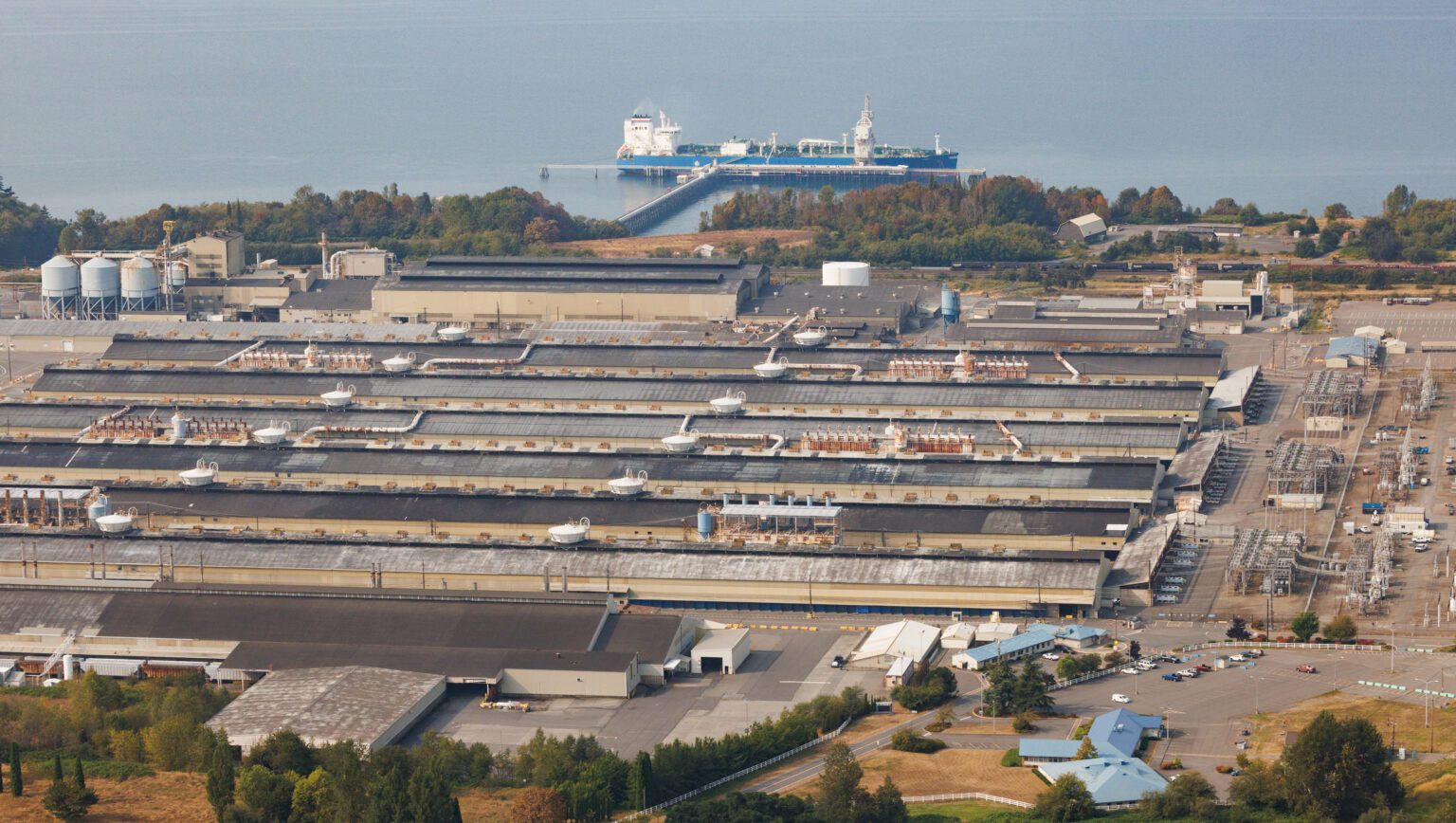When Blue Wolf Capital Partners, the limited liability company involved in talks to restart Ferndale’s Intalco aluminum smelter, pulled out of negotiations last week, community members, former employees and others involved in ongoing mediation were frustrated.
Now, proponents of the restart and locally produced “green” aluminum are seeking more creative ways to get the potlines rolling again.
Political forces in the region, including local, state and federal representatives, are eyeing the Defense Production Act (DPA) to encourage a restart of the only remaining aluminum smelter west of the Mississippi River.
The DPA, a federal law enacted in 1950, allows federal agencies to require businesses to prioritize materials and needs “deemed necessary for national defense,” and in this case, could require a shuttered smelter to go back online.
“I am disappointed to learn this agreement could not be reached to reopen Intalco and bring more union jobs to Whatcom County,” Rep. Rick Larsen told Cascadia Daily News. “I will continue to work with federal, state and local partners, labor and industry to help bring these jobs back to northwest Washington.”
Earlier this year, Larsen directed some of his staffers to study the DPA, to see if it could be used to help restart the smelter. Reopening the plant could restore at least 700 union manufacturing jobs to northwestern Whatcom County.
“I’ve asked the staff to look at the DPA,” he said in early September during his endorsement interview with CDN. “[And] whether or not there is a way to use the DPA from a national security perspective and consider the total domestic aluminum supply in the U.S.”
Advocates of the smelter restart have long said the country has a dire need for locally sourced aluminum, particularly as international tensions with Russia heat up.
“There’s a national security question about this,” Larsen said in September. “Where do we get aluminum from, and where do we want to get it from?”
In 2020, the United States imported about $19.1 billion worth of aluminum from 131 countries. Canada is the largest provider, supplying more than a third of the total U.S. imported aluminum. Russia was the seventh-largest supplier, providing about 2.2% of the aluminum imports.
U.S. aluminum, critical for the military, shipping, trade and commerce, has to come from somewhere. If it comes from Ferndale, the region will have more control over its environmental impact, former employees said.
“We get a lot of our aluminum from places like Russia and China,” former Intalco employee Paul Shuey said. “Those countries pollute a lot more, and the U.S. has a lot more regulation for greenhouse gasses. It’s just a lot dirtier, and it’s not local.”
Shuey, who currently sits on the Ferndale City Council, was devastated when the smelter closed in mid-2020.
“We were the last smelter west of the Mississippi,” he said last week. “It makes a big impact for the local community, for us.”
Federal investigators for the Department of Defense, too, were exploring the DPA for aluminum smelting as early as 2020, as part of the National Defense Authorization Act (NDAA). The NDAA called for Secretary of Defense Lloyd Austin to submit a report on aluminum refining, processing and manufacturing to the Committee on Financial Services of the House of Representatives, as well as the Committee on Banking, Housing, and Urban Affairs of the Senate before March 1 this year.
A redacted version of the report was released to the public on Tuesday, and, in response, Larsen, Washington Rep. Suzan DelBene and Washington Sen. Maria Cantwell said it “reaches the same conclusion we’ve all known for too long – that unfair overseas trade practices and foreign dependency have undercut America’s domestic aluminum production capacity and with it thousands of good-paying union jobs.”
Legislators continue to urge federal powers to enact the Defense Production Act, particularly in response to Intalco’s closure.
“Failing to do so would threaten our critical infrastructure and defense capabilities and risk losing more manufacturing jobs,” the three legislators said in a joint statement Tuesday.
The DPA has been reauthorized over 50 times and was most recently used by the Biden administration to “accelerate domestic manufacturing of clean energy,” earlier this year.
At this point, the DPA would not impact reopening negotiations from the Bonneville Power Administration (BPA), the group that previously supplied electricity to the smelter. Many of the smelting supporters blame BPA for the failed restart, as BPA was unable to offer below-market electricity rates to Blue Wolf.
“The DPA wouldn’t impact us, but it would impact Blue Wolf or the federal entity that invoked the act,” said Doug Johnson, senior spokesperson for BPA. “We’re going to continue to negotiate a deal based on the market, which would, in our view, cover the costs that we might have to provide that power, and not have us transfer costs to our existing customers.”
This story was updated at 2:12 p.m. Dec. 20 after a redacted version of the Aluminum Refining, Processing, and Manufacturing Report to Congress was released.




